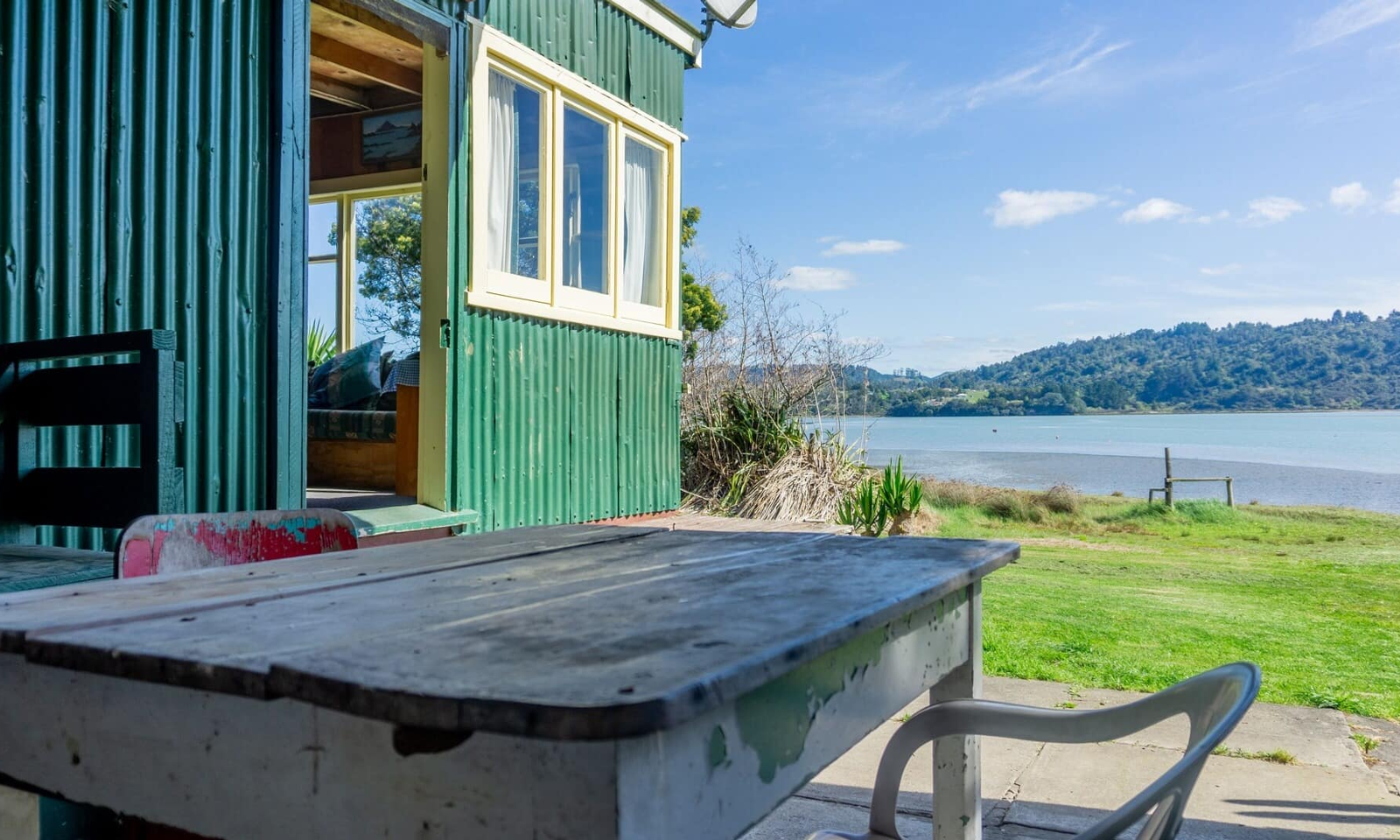

The Oranga Tamariki Oversight Bill, that is meant to keep children and young adults away from abuse in state care, is becoming law despite widespread criticism. Photo/NZ Doctor.
Photo/NZ Doctor.
Minister defends controversial children's bill as 'right thing to do'
Controversial Oranga Tamariki Oversight Bill is meant to keep children and young adults away from abuse in state care despite widespread criticism



Holiday Classics: The sports films that bring families together

Memories over miles: South Aucklanders share their favourite holiday getaways



Ancient DNA shows how Pasifika carried pigs across the ocean

Holiday Classics: The sports films that bring families together

Memories over miles: South Aucklanders share their favourite holiday getaways

Social Development and Employment Minister Carmel Sepuloni is defending a controversial bill expected to become law despite widespread opposition, saying that it is “the right thing to do”.
Oversight of Oranga Tamariki System and Children and Young People's Commission Bill aims to change who monitors Oranga Tamariki. It would strip and replace the Children’s Commissioners role of advocacy, monitoring and investigation of wrong-doings in state care.
Legislation would remove investigative powers held by the Children’s Commissioner, taking away their ability to speak directly to the prime minister. The Ombudsman Office would be given the power to investigate, monitor and make recommendations instead.
The Children’s Commissioners office’s role of being the independent and external monitor of Oranga Tamariki would end. It would be replaced with a three to six-person board. The chairperson of the board would be known as the ‘Chief Children’s Commissioner’. Oversight of Oranga Tamariki would be split between a new independent monitor and the Ombudsman.
“I am absolutely confident that it is the right thing to do,” says Sepuloni.
Criticism of the planned legislation focuses on the fact that the new independent monitor would sit within the Education Review Office, which is a government body, rather than in a separate Crown entity, raising concerns about its independence.
However Sepuloni does not agree.
“Some people said we are doing away with the Children’s Commissioner, but we still have a chief Children’s Commissioner which is bolstering the support by giving them a board; that we were shifting the complaints process but actually the complaints process has already laid with the ombudsman largely and so that was already the case,” Sepuloni says.
“And concern that we were setting up the independent children’s monitor in a departmental agency instead of a Crown entity, the concerns have been laid by the absolute focus on independence that’s in the legislation.”
She says their priority is having an oversight system in place that protects the children and provides assurances that the system is being monitored.
State care survivor and children's advocate Tupua Urlich says the reforms being made to the Oranga Tamariki Oversight Bill are deeply flawed.
Planned law changes wouldn't protect the Pasifika children and their rights in state care from abuse.
He says the bill takes away advocacy and investigation powers from the children's commissioner and gives it to government, giving government more control and influence over the reports and advocacy of how their system is treating children in state care.
“The office of the Children’s Commissioner has been doing some solid advocacy work exposing so much of the wrong doing and the harm being inflicted around our young people.
“That rather than listening to that and making the necessary changes the government has just silenced it by stripping it of its powers and placing the monitor under their own control," says Urlich.
Urlich says the bill will “fail young people” as it’s not made for children, claiming it is designed to protect the reputation of government institutions and their powers.
But Sepuloni refutes that.
“I absolutely understand people are passionate about the Oranga Tamariki system and in the past people have been failed by the state and so I know that some of the concerns that have been raised have been broad ranging.
“I am confident that we will have the type of monitoring and system in place that we have been missing and that we need,” she said.
Save the Children Research Lead Jacqui Southey says the Oversight of Oranga Tamariki Bill doesn't acknowledge the cultural needs of Pasifika children and young people in state care.
“There was very little visibility of Pasifika children and Pacific People’s culture in this bill. There was very limited mention, and we know that there’s report after report that Pasifika children are disenfranchised when it comes to being in state care.”
Southey says Save the Children was opposed to the bill when it was first released to the Select Committee process, in which MPs of all parties scrutinise proposed legislation.
“We were really concerned that in the government’s desire to have greater oversight of children they were also taking away some critical pieces of the puzzle of which was that role of Children’s Commissioner - that champion for children, that known advocate."
But while Save the Children were disappointed in response to the original bill, important “positive” changes were made following the Select Committee process, says Southey. Namely, Chief Children’s Commissioner with the power to report directly to the Prime Minister, and greater child protection requirements of the Monitor.
Save the Children ran a petition at the time and received over 10,000 signatures calling Carmel Sepuloni to keep the role of the Children’s Commissioner.
Save the Children says they continue to encourage the Government to consult with children on the new Commission, and they want assurance from Sepuloni that the independence of the monitor will truly be independent.
The Oversight Bill came about following the Beatie review in 2018 which said that Child Youth and Family failed in their duty of care of children, Southey said. The review concluded that changes were needed in the systems' oversight.
Possible advocacy, monitoring, and complaints around state care abuse could be put together under one entity, Save the Children agreed at the time.
However, Southey says Save the Children did not agree to the “substantive change to the Children’s Commissioner’s role”. She says the decisions made by government around this bill haven’t been made clear.
“We asked at the time of the Beatie review whether this was about the role of the Children’s Commissioner. We were told no it wasn’t. We understand the reasons for why the monitoring wanted to be increased but we don’t understand the reasons all the changes to the Children’s Commissioner.”
She claims the government weren’t listening to them about the concerns raised at first, but as the bill progressed Southey says there was engagement with the Minister’s office to see those changes through.
The Bill was open to the public for a review just before Christmas in 2021, and people were given only six weeks to submit their views. People were caught by surprise at the timing of the public consultation, says Southey.
The bill is being opposed by some groups despite the changes made, including the Green Party and children’s advocacy organisation, Barnardos New Zealand.
Green Party Children spokesperson Jan Logie says the government ignored the advice from public, sector leaders, policy experts, lawyers, and academics.
“By fracturing the oversight system and bringing the role of monitoring Oranga Tamariki into Government against the wishes of those who will need it, this bill risks perpetuating a vicious cycle of abuse.
“It will be a moment Labour will look back on and regret," says Logie.